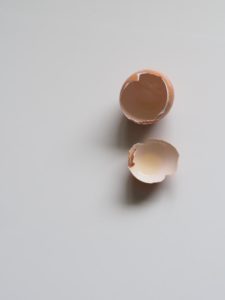
Searching for a hair in an egg
Like most languages, Serbian has a wealth of idioms and other types of sayings that have arisen over the centuries of the language’s development and are often colourful, pithy and apt. Sometimes they are closely tied to Serbian or Balkan culture or perhaps village life, and a translation from Serbian into English would be difficult or even impossible. In other cases they would work quite well in English – you almost wonder why they don’t exist in English already!
In recent years, people in Serbia have amused themselves by “literally” translating idioms from Serbian to English, which results in complete nonsense most of the time (like most literal translations). These “translations” tend to be far more amusing to Serbian speakers than to English speakers, who are often left bemused by them, while the Serbs roar with laughter.
We are not interested in those “funny translations” here. Instead we thought it would be nice to list some good translations from Serbian to English of idioms that would work in both languages to an extent, even if all their nuances, connotations and rhythm can never fully be conveyed. We may have to tweak them a little to get them to trip off the tongue in English. Some of them even sound remarkably similar to expressions in English. We’ll let you figure those out for yourselves!
Idioms, sayings and proverbs can give us an insight into the beauty and depth of a language so that we can appreciate it more – and you never know, perhaps some of them might enter the English language one day! By the way, many of these expressions are used in the other languages of the former Yugoslavia too – Croatian, Bosnian etc.
“Don’t go looking for a hair in an egg” (Serbian – Ne traži dlaku u jajetu), meaning “don’t go out of your way to find fault in something”, conjures up the image of someone rummaging through an egg looking for a hair that they are obviously unlikely to find! Similar to this is “Don’t try to force poppy seed onto a piece of thread” (Serbian – Ne teraj mak na konac), a poppy seed of course being very tiny. Anyone trying to thread a length of cotton through a poppy seed is stubbornly trying to achieve a goal to the exclusion of common sense. In this context people might also criticise someone for “…straightening winding Drinas” (Serbian – Ispravljanje krivih Drina). The Drina river on the Serbia-Bosnia border is very winding, and straightening it out (let alone several of them, hence the plural) is an impossible task. Don’t bother trying to fix something that just can’t be fixed.
“A good horse kicks dust up behind him” (Serbian – Za dobrim konjem prašina se diže) no longer refers just to horses, but to people too. If you have some worth in an area of life then your reputation will speak for itself, much as the dust will billow up behind a powerful horse. Perhaps people are talking about you for some reason (it might not even be complimentary!) – you can say, “Well, a good horse kicks dust up behind him!” Speaking of horses, Serbian has an expression, “You should not look a gift in the teeth” (Serbian – Poklonu se u zube ne gleda), which of course has the same origins as the English, “Never look a gift-horse in the mouth”, i.e. don’t weigh up the value of a gift – a gift is a gift and is to be accepted as such. Staying on the subject of our equine friends, if you ever get into a boasting match with someone, perhaps on the size of their prize pumpkin, you might well say, “Well, we have a horse for the race, too!” (Serbian – I mi konja za trku imamo), meaning, “You are not the only one who has one that big, wait till you see ours!”
What about, “The wolf is full and no sheep are missing” (Serbian – Vuk sit i sve ovce na broju). You might loosely translate this into English as “It’s a win-win situation”. The wolf is sated and no sheep had to get eaten, always a good result in any walk of life. While we are on the subject of wolves, if you are talking about somebody and just that minute they walk in on your conversation you might say “We talked of the wolf and he knocked on the door” (Serbian – Mi o vuku a vuk na vrata). Provided you are happy with them knowing you were talking about them, of course. Not unlike “…talk of the devil..!”
Here are some more:
“The mountain shook but a mouse was born” (Serbian – Tresla se gora, rodio se miš) – much ado about nothing, a storm in a teacup.
“It’s hard to get a frog in the water” (Serbian – Teško žabu u vodu naterati) – meant ironically, an attempt at persuasion that is considered a pushover! “Would you like some more cake?” “Well, you twisted my arm!” (as if I needed persuading!)
“Until dusk falls for one man, dawn cannot come for another” (Serbian: Dok jednom ne smrkne drugom ne svane). A bit more concise in Serbian, this means that one man’s ill fortune is another’s good fortune.
“Better a sparrow in the hand than a falcon on the branch” (Serbian: Bolje vrabac u ruci, nego soko na grani) – no further explanation required there! “A bird in the hand is worth two in the bush.”
“He who has burned himself on milk will blow on yoghurt too!” (Serbian: Ko se jednom na mleko opece taj i u jogurt duva) – “Once bitten, twice shy”!
“The early riser grabs good fortune twice!” (Serbian: Ko rano rani dve sreće grabi) – “The early bird catches the worm”. Except it’s TWICE the luck in Serbian!
We will keep adding to this list – let us know if you have some good suggestions of your own!




